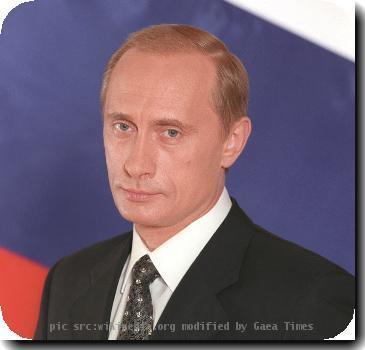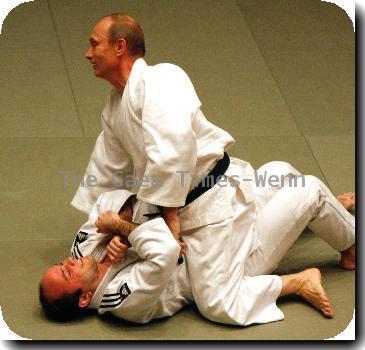New Kyrgyz leader considered pragmatic politician, skilled diplomat
By Deborah Seward, APThursday, April 8, 2010
New Kyrgyz leader pragmatic politician, diplomat
PARIS — The woman now leading the interim government in Kyrgyzstan after bloody unrest has a reputation as a pragmatic, skilled diplomat. The question is whether opposition leader Roza Otunbayeva can hold onto power and put her volatile country, once considered the most progressive in Central Asia, on a path to stability and prosperity.
Otunbayeva, 59, has impressive credentials. She successfully has navigated political environments as varied as the labyrinth of the Communist Party in the former Soviet Union in the 1980s, as foreign minister of newly independent Kyrgyzstan in the 1990s and as an opposition political leader in her turbulent native country in the current decade.
Otunbayeva claimed power Thursday, declaring the Kyrgyz parliament was dissolved and that she would head the government until elections were held. She urged the current president, Kurmanbek Bakiyev, to resign.
“She is someone who is viewed as a hope. She inspired the confidence of people more than others,” said Didier Chauvet, a specialist in Central Asia and lecturer at the Institute for Political Studies in Paris. “Her return is a hope”
She also has modern political savvy, communicating with her followers by Twitter in both Kyrgyz and Russian.
Otunbayeva, however, faces huge challenges, including holding the opposition coalition together, preventing Bakiyev from returning to power, a dire economic crisis as well as treading between both the United States and Russia, both of which have military bases in her country.
“She is a smart person and she understands the situation,” said Leonid Bondarets, who has been affiliated with the Sweden-based Central Asia and the Caucasus think tank, “But the opposition primarily criticized the government and concretely did not propose anything themselves.”
Otunbayeva, a native of the southern Kyrgyz city of Osh, has deep roots both in local and national politics.
She studied at the philosophy department at the prestigious Moscow State University during the standstill years of Soviet leader Leonid Brezhnev in the 1970s, before embarking on a career as a Communist Party official in her native Kyrgyzstan.
Wider horizons beckoned, and Otunbayeva took up diplomacy, serving as the Kremlin’s chief delegate to UNESCO in Paris and then ambassador to Malaysia.
The 1991 collapse of the Soviet Union opened new opportunities when Kyrgyzstan, like all of the 15 Soviet republics, became independent. Otunbayeva quickly rose to influential positions, serving as her country’s foreign minister and later as Kyrgz ambassador to the United States and Britain.
Politics, however, called again. She returned home only to plunge into the political turmoil there. She became one of the leaders of the 2005 Tulip Revolution that swept then-President Askar Akayev, a former physicist and once the most promising leader in Central Asia, from power and brought Bakiyev in.
Well-known in Kyrgzystan and abroad, Otunbayeva has earned a reputation as a solid diplomat who stayed free of the corruption that has tainted too many Kyrgyz politicians.
“Otunbayeva is a respected politician for the whole nation, her hands are clean and reputation immaculate,” said Daniil Kislov, political analyst and chief editor of the Ferghana.ru online daily that was banned in Kyrgyzstan under Bakiyev. “She has enough talent and wisdom to be a president.”
“The primary task is to get a system of power that will function up and running,” said Bondarets.
That will be a tough road.
As in 2005, order has collapsed in Kyrgyzstan both in the capital and the volatile south amid a severe economic crisis in which prices of gas, electricity and heating have soared in recent months.
“People are mad. People are angry,” said Evan Feigenbaum, senior fellow for Asia at the Council on Foreign Relations and former U.S. Deputy Assistant Secretary of State for Central Asia.
“The question is: Do we get a government that can restore and maintain order but also set the country on a path to democratic governance?” he asked.
In addition to restoring stability and providing hope for an improved economy, Otunbayeva will need to use all of her diplomatic skills to navigate between Washington, which wants to make sure it can keep its U.S. base in Kyrgyzstan, and Russia, which wants the United States out of Central Asia.
“The victory of the opposition shows that Russia has decided to have a dominant influence in Central Asia,” Chauvet said. “She is closer to Moscow,” he added. Russia has not gone as far as recognizing Otunbayeva, but Prime Minister Vladimir Putin has been critical of Bakiyev and he spoke with Otunbayeva on the phone Thursday.
Bakiyev’s abysmal record could give Otunbayeva some time to cement her forces.
Kislov of Ferghana.ru said that the formerly fractured Kyrgyz opposition joined their forces in recent months as they tried to counter Bakiyev’s policies, and this unity might save the coalition from disbanding in the nearest future. That view, however, is not universal.
“I would expect a lot of pushing and pulling in the opposition. I don’t think this thing is over,” said Feigenbaum. “I think we’re at the beginning of this story.”
AP correspondent Mansur Mirovalev in Moscow contributed to this report.
Tags: Asia, Central Asia, Eastern Europe, Europe, France, Kyrgyzstan, Moscow, North America, Paris, Russia, United States, Vladimir Putin, Western Europe

